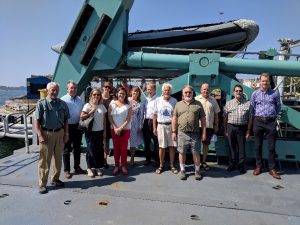Science magazine runs a helpful story by Alex Fox on the final report from our 29-30 November 2018 National Conference on Marine eDNA:
The ocean is full of drifting DNA. The United States needs to collect it, researchers say
Also, a good new Japanese research paper is published on eDNA:
and in Revelator 27 February 2019
How Do You Protect a Species You Can’t See? For manatees and other hard-to-spot species, the answer may lie in the minute particles of DNA they leave behind as they move through their environments.

